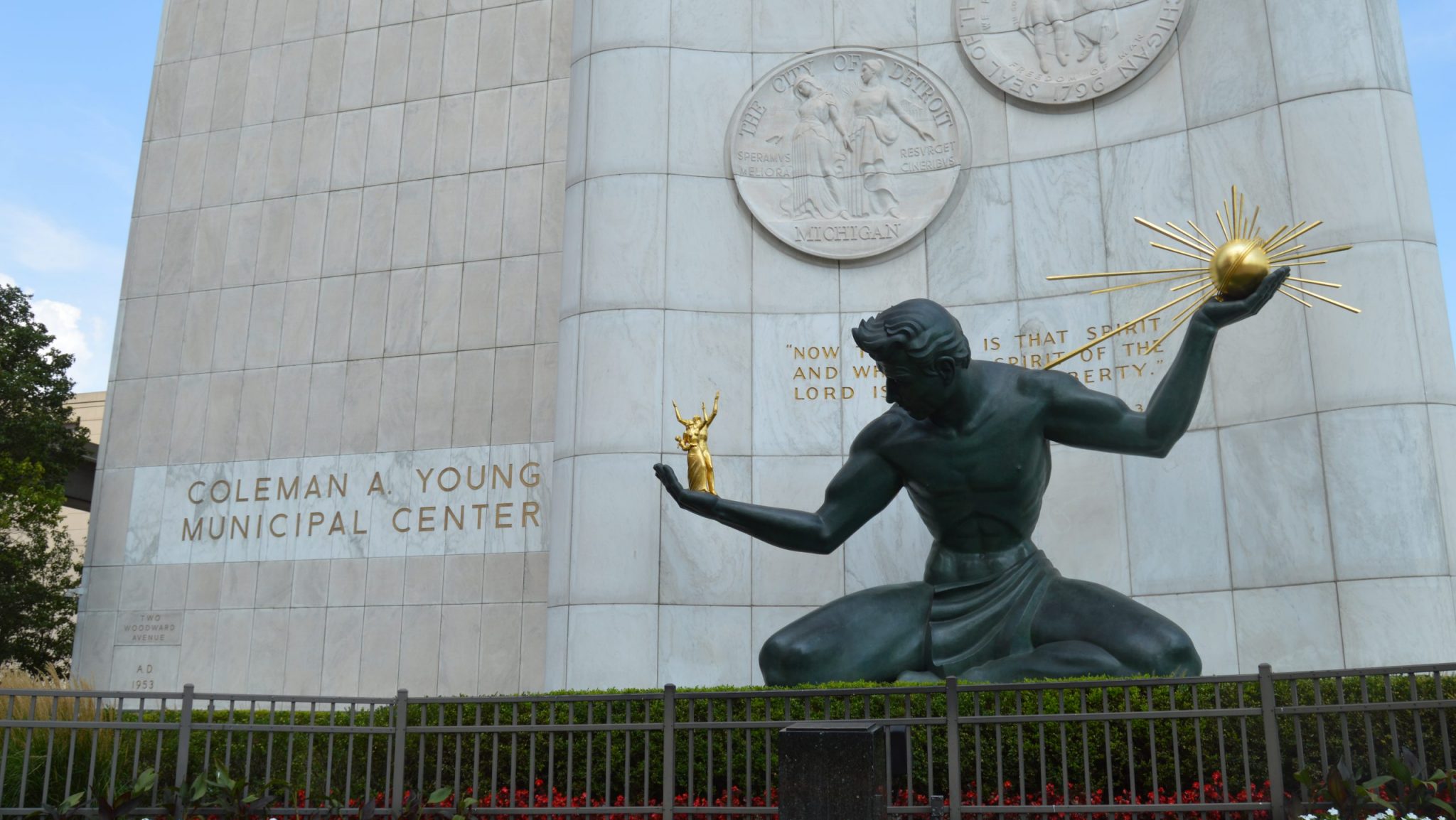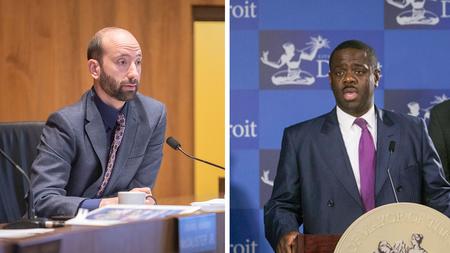Corruption Scandals Can Make the Public Cynical — or They Can Spark Change, Advocate Says
Scandals like the ones roiling Detroit City Council raise awareness of how these relationships begin on the campaign trail, says Beth Rotman of public policy organization Common Cause.

The Coleman A. Young Municipal Center.
Detroit and its elected city councilmembers are in the middle of a public corruption scandal. Contracts, bribery and campaign finance violations have become the focus of the years-long federal investigation. And city elections are next week.
Beth Rotman is a program director for Common Cause, a policy advocacy group. She helped create the Citizens’ Election Program in Connecticut and focuses on money in politics and ethics.
She says corruption scandals can make the public cynical — or they can jump-start change. Following recent events in Detroit, including the FBI raids on council members’ homes and resignations of Gabe Leland and Andre Spivey, she says such incidents shine a light on how these relationships are formed while candidates are campaigning and continue when they’re in office.
“In politics, it costs some money to get your message out and special interests are very happy to pay … because they understand that relationships are built on a campaign trail.” –Beth Rotman, Common Cause
“Often these scandals lead to more public awareness of how these ties can actually begin on the campaign trail and also in the relationships that form because of the connections between wealth and policy outcomes. And also contracting connections in state and local government,” she says.
WDET’s Eli Newman spoke with Rotman about how scandals can help lead to change. Read excerpts, edited for clarity, below:
Listen: Beth Rotman on how corruption scandals start on the campaign trail.
Eli Newman, WDET News: Why is it on the campaign trail that the genesis of some of these corruption scandals begin?
Beth Rotman, Common Cause: In politics, it costs some money to get your message out and special interests are very happy to pay … because they understand that relationships are built on a campaign trail. People on the campaign trail are going to answer phone calls quicker to folks that help them get into office. If we break down those relationships and make it more possible for everyday Americans to be those donors through programs known as citizen-funded elections or small donor democracy, we can actually … make it possible for everyday Americans to be part of the process and have their issues focused on when their leaders are elected.

How would you disrupt that quid pro quo kind of relationship that donors sometimes have with politicians?
Essentially a package of reforms puts together small dollar contributions that come from everyday residents that someone is seeking to represent when they’re elected to office, and that shows that someone is a serious candidate. They can get $5 contributions, $10 contributions, and then there’s a public match that comes from the government. And those public funds amplify the voice of that everyday American, that everyday resident, so that what’s actually valuable is that small dollar contribution. It eliminates the need for the sort of money chase because the matches can be quite substantial.
What are the other ways that this kind of malfeasance, corruption and campaign finance can affect average people beyond political realm? What does the average Joe feel when that is happening even if they’re not necessarily aware of it?
Policy and big money become so entangled that things that really would make a huge difference in the everyday lives of residents can never come to light. Connecticut became the first state in the nation to pass sweeping health care across the state for service workers, and that came about only after these sweeping reforms changed the landscape. It’s really a testament to what can happen when people engage in reform and change the debate, and none of that would have happened had there not been, I believe, the huge scandal with people then rising up and demanding reform. But often these scandals lead to more public awareness of how these ties can actually begin on the campaign trail and also in the relationships that formed because of the connections between wealth and policy outcomes, and also contracting connections in state and local government. We certainly see that in the DOJ cases and we saw that in New York City and Connecticut and other jurisdictions around the country.
Trusted, accurate, up-to-date.
WDET strives to make our journalism accessible to everyone. As a public media institution, we maintain our journalistic integrity through independent support from readers like you. If you value WDET as your source of news, music and conversation, please make a gift today.
